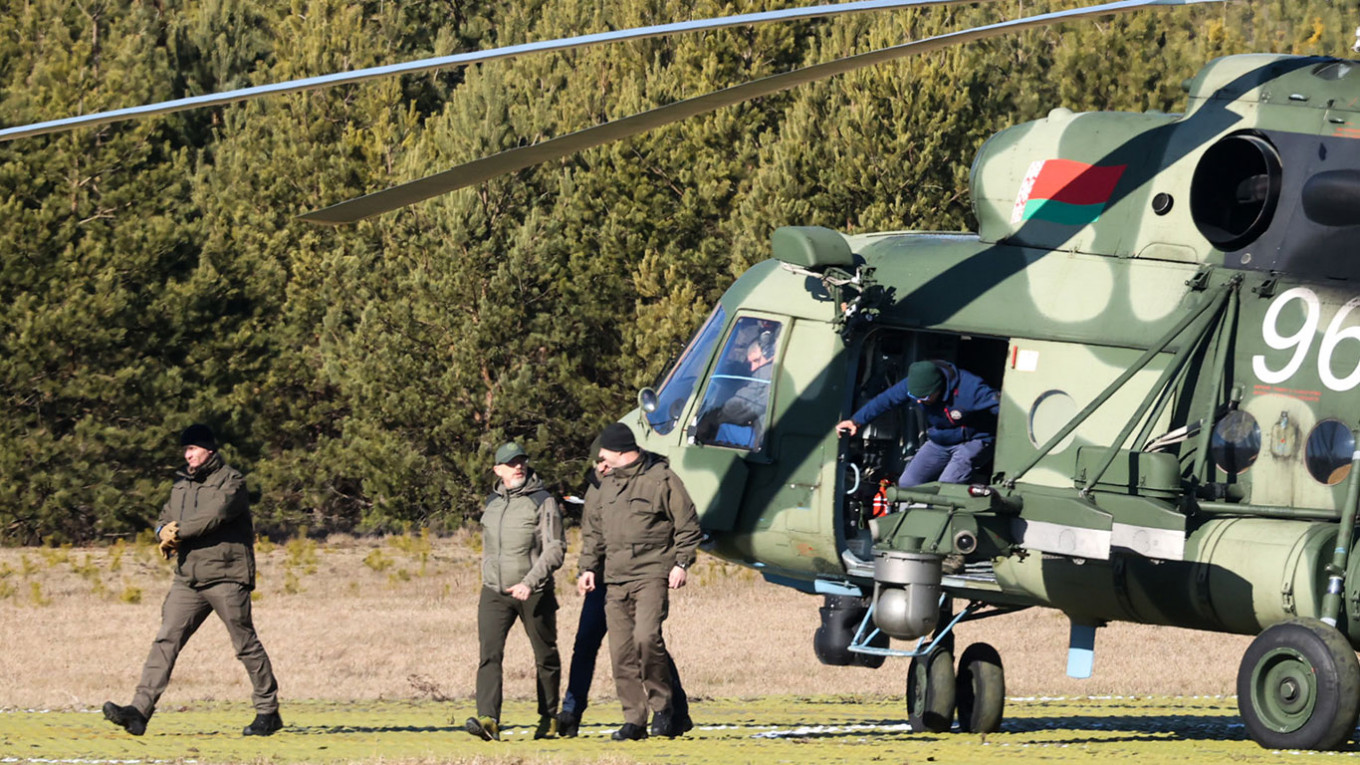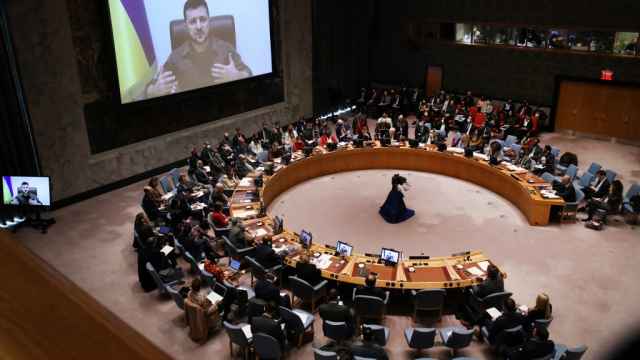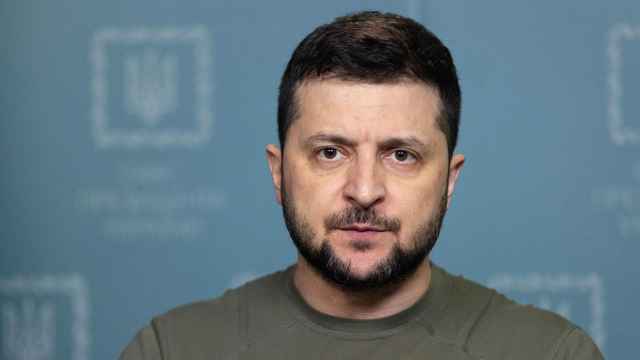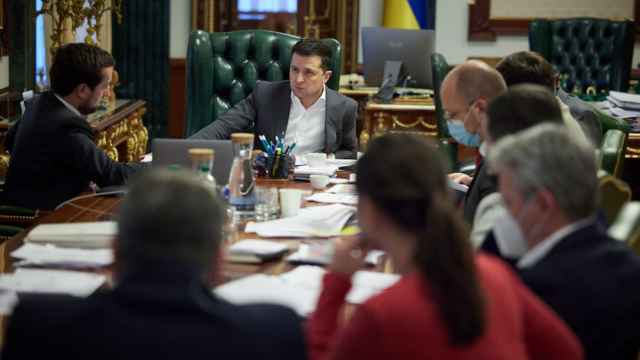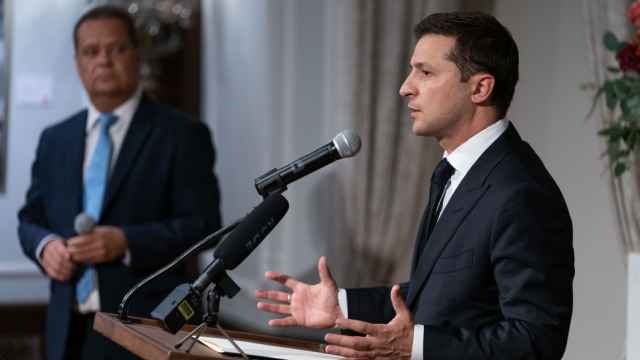Russia and Ukraine kicked off talks on the Belarusian-Ukrainian border Monday, Belarusian state television reported, several days after the start of Russia's deadly ongoing invasion of its neighbor.
Ukrainian President Volodymyr Zelenskiy’s office said it will seek an immediate ceasefire and the withdrawal of Russian troops from Ukraine at the talks.
The Kremlin declined to share the Russian delegation’s negotiating position Monday, saying “the negotiators should talk in silence.”
Zelenskiy’s office said the Ukrainian delegation consists of Ukraine's defense minister, deputy foreign minister, as well as four senior lawmakers and presidential office staffers.
Russia’s team comprises Moscow’s ambassador to Minsk, its deputy defense minister, a senior lawmaker and President Vladimir Putin’s aide Vladimir Medinsky.
"We definitely have an interest in reaching some agreements as soon as possible," Medinsky, who traveled to Belarus for the talks, said in televised remarks.
"We are waiting for the arrival of the Ukrainian delegation," he said, adding he expected the talks to start at noon local time.
Russian-Israeli billionaire Roman Abramovich is reportedly joining the negotations at Ukraine's request, according to The Jerusalem Post.
Russian state television later filmed two approaching helicopters that it said was the Ukrainian delegation arriving for talks.
Belarusian state television reported that the exact location of the talks on the banks of the River Pripyat will not be disclosed out of security concerns.
Belarus state television briefly broadcast live video from the negotiating room until an unknown woman ordered journalists to turn off all cameras.
Zelenskiy over the weekend held out little hope of reaching a breakthrough at the talks but agreed to send a delegation after securing a promise from Russia of no preconditions.
He has cut off diplomatic ties with Moscow over Putin’s order to launch what is officially labeled a special military operation and what the Russian leader has called an effort to “demilitarize” and “denazify” Ukraine.
The first five days of the offensive were met by stiff resistance by Ukrainian forces and unprecedented sanctions and condemnation from the West.
A Message from The Moscow Times:
Dear readers,
We are facing unprecedented challenges. Russia's Prosecutor General's Office has designated The Moscow Times as an "undesirable" organization, criminalizing our work and putting our staff at risk of prosecution. This follows our earlier unjust labeling as a "foreign agent."
These actions are direct attempts to silence independent journalism in Russia. The authorities claim our work "discredits the decisions of the Russian leadership." We see things differently: we strive to provide accurate, unbiased reporting on Russia.
We, the journalists of The Moscow Times, refuse to be silenced. But to continue our work, we need your help.
Your support, no matter how small, makes a world of difference. If you can, please support us monthly starting from just $2. It's quick to set up, and every contribution makes a significant impact.
By supporting The Moscow Times, you're defending open, independent journalism in the face of repression. Thank you for standing with us.
Remind me later.


